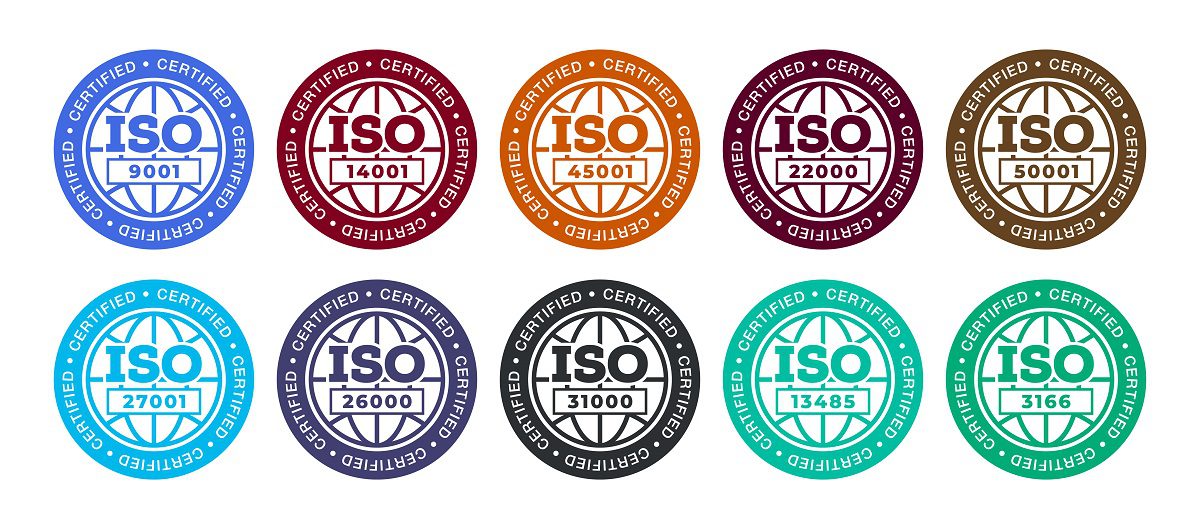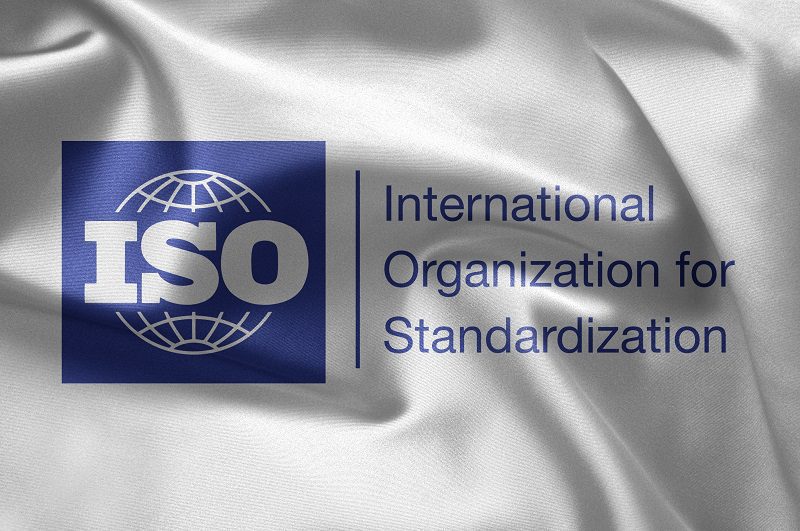
Read More
AS/NZS ISO 45001:2018 – Occupational health and safety management systems – Requirements with guidance for use
The implementation of AS/NZS ISO 45001:2018 allows businesses to deliberately identify and address occupational health and safety hazards, ultimately culminating in a more secure workplace.
For instance, a construction firm skillfully adopted the standard, leading to a noteworthy decrease in workplace mishaps and injuries by executing comprehensive safety rules and employee teaching programs.
This ISO accreditation reveals the company’s conformity with the specifications of AS/NZS ISO 45001:2018, assuring stakeholders of their dedication to occupational health and safety in Australia.

Read More
AS/NZS ISO 14001:2016 – Environmental management systems – Requirements with guidance for use
Environmental monitoring is a critical element of organizational operations, and AS/NZS ISO 14001:2016 offers invaluable direction for businesses to proficiently pinpoint and command their ecological aspects to advance sustainability and reduce squandering and contamination.
This international regulation helps organizations comply with lawful prerequisites and environmental commitments while also refining their environmental presentation.
By putting into practice AS/NZS ISO 14001:2016, firms in Australia can attain ISO accreditation and demonstrate their adherence to ecologically responsible practices.

Read More
AS/NZS ISO 9001:2016 – Quality management systems – Requirements
Organizations that accept AS/NZS ISO 9001:2016 embark on a trajectory of achievement, utilizing a strong structure to advance their operational capability and construct a reliable basis for sustained betterment.
AS/NZS ISO 9001:2016 Quality Management Systems – Requirements give organizations in Australia with a suggestion for accomplishing ISO accreditation.
Compliance and certification amenities in Australia lend a hand to organizations in instituting and preserving the essential requirements to acquire ISO 9001:2016 certification.
This approval displays an organization’s allegiance to quality management systems and can unlock novel business openings.

Importance of ISO Accreditation for Businesses in Australia
Achieving ISO certification in Australia is of great significance to industries such as healthcare, manufacturing, and construction. Attaining this accreditation allows organizations to demonstrate their commitment to meeting customer requirements and delivering top-notch products or services, substantially boosting their reputation and creating new business prospects.
ISO certification is a worldwide respected standard for management systems, and we can help organizations in navigating the ISO accreditation process and assist in demonstration compliance with the requirements.
By embracing ISO standards, businesses can show their dedication to performance and continual improvement.

Lastly, to maintain ISO certification, organizations must undergo periodic surveillance audits. These audits are typically yearly and provide assurance that the organisation is continuing to comply with the relevant standards.
Maintaining ISO certification is an ongoing process, and the job is never “finished”. Demonstrating ongoing commitment and continual improvement are both required to keep your companies valuable “ISO Certification” status.
Read More
The process of attaining ISO accreditation necessitates an important step – determining applicable ISO standards pertinent to the organization’s field and operations.
An ISO consultant, experienced in ISO compliance services, can provide assistance in this matter. This specialist will investigate the organization’s needs and direct them in selecting the appropriate ISO standard(s) for meeting the obligatory ISO stipulations and to proceed with the ISO certification procedure.
Read More
In order to properly determine the scope of accreditation, organizations must analyze their procedures and operations closely, taking into account components such as size, complexity, and trade regulations.
This assessment is indispensable for gaining ISO recognition and making sure that certification services in Australia are followed.
Research conducted by the International Accreditation Forum demonstrated that 73% of organizations experienced an increase in operational proficiency and performance due to defining the scope of accreditation.
Read More
Developing an ISO implementation plan necessitates creating a step-by-step roadmap that outlines the resources and measures necessary for firms to conform their operations with global criteria.
This design is indispensable in attaining iso conformity standards and iso accreditation procedures. It guarantees companies observe iso audit norms and evolve into an iso accredited company.
ISO accreditation experts can aid in formulating this plan, specifically for iso occupational health and safety management systems.
Read More
Conducting internal audits affords organizations a precious opportunity to investigate their quality management systems in great detail, akin to a detective probing for hints of potential zones of advancement.
These audits are indispensable in guaranteeing conformance to ISO norms for sustainability and an amalgamated management system ISO.
By carefully analyzing activities and regulations, organizations can detect deficiencies and make essential modifications.
Moreover, internal audits assist organizations in readying themselves for inspections conducted by accreditation bodies, ensuring a tranquil and successful accreditation process.
Read More
Creating and maintaining documentation for adhering to ISO regulations and executing necessary upgrades is imperative. The paperwork should include rules, operations, and directions that outline the processes and controls necessary for attaining ISO accreditation.
Consulting a list of ISO certification companies can supply help with the proper documentation requirements. Assessing the expense and time involved in constructing and upholding the documentation is crucial for making sure compliance and successful certification.
Read More
Implementing an exhaustive training program to instruct employees on ISO standards and processes can engender an atmosphere of ceaseless betterment and guarantee organizational efficacy.
By supplying personnel with the requisite erudition and aptitudes, organizations can enhance their capability to accomplish ISO accreditation.
Instructional sessions can encompass themes such as ISO demands, documentation systems, interior assessments, and remedial measures.
This proactive methodology permits personnel to comprehend their positions in preserving agreements and aiding certification amenities in Australia.
Read More
Establishing ISO procedures can be viewed as setting up a reliable infrastructure that guarantees organizational efficiency and encourages a mindset of continual growth.
ISO procedures involve a range of certifications, such as OHSMS certification, QMS certification, and quality management system certification.
These processes are intended to address occupational health and safety as well as integrated management systems.
By establishing ISO procedures, businesses can create a solid system that promotes compliance, increases productivity, and decreases risks related to operations.
Read More
Successful implementation of ISO procedures requires vigilant observation and assessment of progress. This step guarantees that the quality management system is correctly aligned with the operations of the organization.
Regular checks must be undertaken to ensure conformity with quality management standards and to pinpoint opportunities for improvement.
Evaluation of performance against preset objectives and goals should be conducted to measure progress.
An internal ISO auditor can be recruited to carry out examinations and evaluations to ascertain adherence to ISO standards and facilitate attaining of quality accreditation.
Read More
Conducting internal audits affords organizations a precious opportunity to investigate their quality management systems in great detail, akin to a detective probing for hints of potential zones of advancement.
These audits are indispensable in guaranteeing conformance to ISO norms for sustainability and an amalgamated management system ISO.
By carefully analyzing activities and regulations, organizations can detect deficiencies and make essential modifications.
Moreover, internal audits assist organizations in readying themselves for inspections conducted by accreditation bodies, ensuring a tranquil and successful accreditation process.
Read More
Pursuing ISO certification is a tactical move towards augmenting organizational trustworthiness and showcasing a devotion to conforming to internationally recognized standards for quality management systems.
ISO accreditation and authentication services in Australia offer companies the requisite know-how to negotiate the intricate procedure of attaining ISO certification.
By procuring ISO certification, enterprises can guarantee acquiescence with industry laws, boost productivity, and acquire an advantageous position in the market. This certification serves as a declaration of an organization’s commitment to quality and customer gratification.
| Pros | Cons |
|---|---|
| Augmented organizational trustworthiness | Need for time and resources |
| Compliance with industry laws | The difficulty of the certification process |
| Increased productivity and competitiveness | Potential disturbances during implementation |
Read More About Our ISO Services For Businesses
Navigating the ISO Accreditation Process
Managing the ISO Accreditation Process can be a daunting task for businesses. Compliance services offer invaluable assistance and guidance in recognizing the pertinent ISO regulations for a particular sector, designing and instituting suitable policies and practices, and carrying out internal evaluations to recognize and rectify any irregularities.
By making an alliance with a dependable compliance service provider, organizations can easily traverse the ISO accreditation process and ensure a positive result.
How can Compliance Services Simplify the Process?
By making use of compliance services, companies can successfully traverse the intricate ISO accreditation progression with comfort, as these services offer helpful counsel and aid in refining operations and making sure of deference to the mandatory regulations.
Compliance services ease the process by:
- Uncovering areas that require improvement and putting in effect mandatory transformations.
- Proffering professional advice all through the accreditation progression.
- Economizing both time and resources by refining operations and concentrating on core activities.
What Does ISO Accreditation Mean for Your Business?
Achieving ISO Accreditation for your business implies that you have effectively conformed to global norms, which guarantees effective activities and meets customer desires.
This accomplishment not only fortifies your notoriety yet additionally expands trust and opens up new chances by demonstrating your commitment to quality, maintainability, security, or some other ISO-secured territories.
In any case, the excursion towards ISO Accreditation can accompany its own arrangement of difficulties, which organizations need to explore and overcome with the end goal of acquiring this esteemed acknowledgment.
Benefits of ISO Accreditation
ISO accreditation offers a range of advantages to companies, bestowing them with improved credibility and trust. Attaining this certification shows a commitment to quality and conformity, furthering their renown in the commercial realm.
This accreditation also gives a competitive edge, as many patrons and consumers necessitate providers to be ISO-approved, giving certified enterprises an upper hand over their rivals.
Moreover, ISO accreditation helps refine enterprise operations, streamlining procedures and optimizing productivity within the corporation.
Furthermore, ISO accreditation gifts global recognition, as ISO standards are recognized and respected all over the world.
Lastly, ISO accreditation leads to augmented customer satisfaction, as it guarantees that companies sustain high-quality standards and meet the expectations of their stakeholders.
Improved credibility and trust
Enhanced credibility and trust can be attained through the implementation of ISO accreditation, creating a sense of assurance among stakeholders. ISO accreditation signifies that an organization follows internationally accepted standards, guaranteeing its capability to provide quality goods or services.
This amplifies credibility by indicating a commitment to distinction and continual growth. Stakeholders can feel confident that the organization has experienced thorough examinations and meets stringent criteria. Achieving ISO accreditation in Australia can improve an organization’s popularity and bring in new business possibilities.
Competitive advantage
Gaining the upper hand can position an organization as a frontrunner in the marketplace, resulting in higher market share and profitability.
Securing ISO accreditation can provide this superiority by illustrating a devotion to eco-friendliness, quality control, and patron fulfilment.
ISO confirmation also includes instituting efficacious risk management schemes, which can improve the overall performance and standing of the company.
The certification process guarantees that the organization fulfils global benchmarks, further improving its authenticity and trustworthiness in the eyes of consumers and stakeholders.
Enhanced business processes
By implementing robust and streamlined business processes, organizations can maximize efficiency, decrease costs, and upgrade overall operational performance. Documenting and standardizing procedures allow for successful auditing and makes sure adherence to quality standards.
Adhering to the requirements of the standard grants organizations the opportunity to constantly refine their processes and operations. This devotion to excellence can result in the attainment of an ISO certificate, offering a competitive advantage in the market.
| Advantages | Benefits |
|---|---|
| Maximized efficiency | Decreased costs |
| Upgraded operational performance | Successful auditing |
| Adherence to quality standards | Constant refinement |
| Attainment of ISO certificate | Competitive advantage |
Global Recognition
Achieving global recognition is an invaluable asset for businesses, granting them credibility and prestige on an international level. Studies indicate that companies with a wide-reaching presence make an average of 121% more in revenue.
Services in Australia that provide compliance, certification and ISO accreditation can be of great use to organizations looking to gain this recognition. By attaining ISO accreditation, businesses show their dedication to quality and regulations, which boosts their standing and opens the doors to new prospects in foreign markets.
Increased customer satisfaction
Customer satisfaction is an essential element in assessing the long-term prosperity and success of a company. It indicates the capability of an enterprise to meet and exceed consumer requirements, which in turn leads to greater commitment, repeat purchases, and good word-of-mouth publicity.
Gaining ISO accreditation by using compliance and certification services in Australia can make a substantial contribution to enhancing customer satisfaction. It guarantees that businesses follow international standards, show their dedication to quality, and provide customers with dependable and consistent products or services.
Challenges in the Journey Towards ISO Accreditation
Navigating the pathway to ISO accreditation can prove a daunting task due to the dearth of resources, opposition to transformation, and the complexity of synchronizing existing processes with the ISO mandate.
Companies often have difficulty allocating ample time and funds to introduce an integrated management system that meets ISO standards. Employees and stakeholders may be reluctant to embrace change, stalling progress and making it arduous to reach conformity.
Aligning pre-existing processes with the distinct demands of ISO accreditation is a troublesome and laborious endeavour. To combat such hindrances, organisations can seek help from Australia’s compliance and certification services. These services proffer specialist direction and assistance throughout the ISO accreditation procedure, ensuring a successful certification result.
Ongoing Compliance Post-Accreditation
Maintaining ongoing compliance post-ISO accreditation necessitates regular evaluations and inspections to detect potential areas for development and guarantee observance of the standard’s regulations.
Compliance services in Australia play a key role in helping businesses to traverse intricate regulatory conditions and satisfy stakeholder anticipation.
These services provide the required adeptness and advice to aid businesses in remaining updated with evolving laws and sustaining ISO accreditation, enabling them to benefit from it.
How can Australian Businesses Maintain their ISO Accreditation?
Australian businesses can keep their ISO certification intact by persistently inspecting and optimizing their operational procedures, ensuring they stay in agreement with ever-changing regulatory requirements.
This necessitates conducting regular internal reviews, refreshing processes, staying abreast of ISO standards, and giving continuous training to staff on adhering to regulations.
By doing this, companies can ensure constant submission to certification requirements and keep their ISO accreditation as a well-oiled machine that stands the test of time.
The Role of Compliance Services
Compliance services are instrumental in helping organizations adhere to regulatory requirements and industry standards while providing indispensable guidance and assistance in the formation and execution of proficient compliance programs.
In the context of ISO accreditation in Australia, these services are invaluable in leading businesses through the intricate process, supplying knowledge in forming an integrated management system that aligns with the international standard.
Additionally, compliance services offer certification services, making certain continuous compliance and aiding businesses in retaining their ISO accreditation.
Are there specific compliance services available in Australia to help businesses achieve ISO accreditation?
Compliance services in Australia are of paramount importance for helping businesses attain ISO accreditation. These services provide advice, assistance, and training programs to generate and implement quality management systems that meet ISO benchmarks. They simplify the certification process by offering specialised compliance services adapted to the exceptional needs of businesses.
A few of the key services available in Australia encompass:
- Discrepancy assessment to detect areas for enhancement
- Documentation aid to form quality management systems
- Instructional courses to educate personnel on ISO criteria
- Inspection support to ensure conformance with ISO requirements.
How do I get ISO accreditation in Australia?
To acquire ISO accreditation in Australia, businesses must navigate a sequence of steps, from recognizing the pertinent ISO standard to developing and implementing pertinent protocols, executing internal audits, and engaging with a certification entity for an exterior assessment, which resembles a meticulous choreography of quality administration.
This approach necessitates close attention to detail and compliance with ISO requirements. Compliance and certification services in Australia can provide professional direction and aid throughout the accreditation passage.
| Benefits of Compliance Services | Benefits of Certification Services |
|---|---|
| Assures obedience to ISO requirements | Verifies conformity with ISO standards |
| Supplies expert guidance and assistance | Elevates credibility and reputation |
| Smooths out the accreditation procedure | Displays dedication to quality management |
| Decreases the danger of non-compliance | Augments customer assurance and trust |
| Aids businesses accomplish accreditation expeditiously | Opens up new business openings |
Does Australia use ISO standards?
ISO standards are widely implemented across Australia, providing a structure for organizations to optimize their processes and enhance quality and efficiency.
These standards are essential for guaranteeing compliance and certification requirements are met. By embracing ISO standards, Australian businesses can show their commitment to excellence and gain an edge in the market.
The use of ISO standards can bring numerous advantages to businesses in Australia. ISO standards can help organizations to streamline and improve their services, thus enhancing their productivity, reliability, and customer satisfaction.
By adhering to these standards, businesses can ensure they are able to meet customer expectations and gain a competitive advantage.
Furthermore, ISO standards can help organizations to develop and maintain quality standards, as well as guarantee a safe and secure workplace for their employees.
Additionally, ISO standards can help to reduce costs and time spent on completing tasks, allowing businesses to become more efficient and profitable. By utilizing ISO standards, companies can also benefit from improved documentation and record-keeping, making it easier to track activities and identify areas of improvement.
It is clear that ISO standards can be extremely beneficial for businesses in Australia, providing a framework for improving efficiency, productivity, and customer satisfaction. By committing to ISO standards, organizations can demonstrate their dedication to quality and gain a competitive edge in the market.
How much does it cost to get ISO certified in Australia?
The procedure of procuring ISO accreditation in Australia involves numerous factors, such as conforming to ISO guidelines and certification services.
A key element to consider is the expenditure associated with attaining ISO certification in Australia. This cost fluctuates based on aspects such as the size and intricacy of the organization, in addition to the kind of certification sought.
It is recommended to acquire quotes from several certification bodies to compare rates, which usually encompass audits, observation, and advisable training or consulting services.








